
This 1995 double CD presents the London Jazz Composer's Orchestra 1987 performances at Rote Fabrik, in Zurich, Switzerland and at the 1988 Taktlos-Festival, in a large ensemble that included Barre Philips, Dave Holland, Paul Lytton, Tony Oxley, Howard Riley, Evan Parker, Paul Dunmall, Trevor Watts, Paul Rutherford, Radu Malfatti, Jon Corbett, Phillip Wachsmann, &c.
Out of Stock
Quantity in Basket: None
Log In to use our Wish List
Shipping Weight: 6.00 units
Sample The Album:
Barre Phillips-bass
Barry Guy-bass
Dave Holland-bass
Marc Charig-cornet
Paul Lytton-drums
Tony Oxley-drums
Howard Riley-piano
Evan Parker-reeds
Paul Dunmall-reeds
Peter McPhail-reeds
Simon Picard-reeds
Trevor Watts-reeds
Alan Tomlinson-trombone
Paul Rutherford-trombone
Radu Malfatti-trombone
Henry Lowther-trumpet
Jon Corbett-trumpet
Steve Wick-tuba
Philipp Wachsmann-violin, electronics
Click an artist name above to see in-stock items for that artist.
UPC: 7619942500528
Label: Intakt
Catalog ID: ITK5.2
Squidco Product Code: 30134
Format: 2 CDs
Condition: New
Released: 1995
Country: Switzerland
Packaging: Jewel Case
CD 1 recorded at Rote Fabrik, in Zurich, Switzerland, on November 11th, 1987, by Peter Pfister.
CD 2 recorded at the Taktlos-Festival, at Rote Fabrik, in Zurich, Switzerland, on March 27th, 1988, by Peter Pfister.
"The contrabass grew in significance in the symphony orchestra in the latter part of the 19th century. Beethoven made good use of it, and his contemporary Dragonetti (himself a bass player), even wrote concertos for the instrument. However, the bass has usually been a sympathetic supporter rather than a dominant voice. The instrument didn't seem to have the range - nor its practitioners the technique - to become truly expressive in its own right. The coming of the 20th century, and in particular the arrival of jazz, expanded the bass player's role, but it was the end of the 1930s before the potential of this hitherto textural instrument suddenly exploded into life. An inheritor of both these traditions - because he is busy in the world of improvisation as he is in formal music - is the London bass player Barry Guy, whose work is the focus of this album.
Guy is, quite simply, a double bass phenomenon. Artists and commentators from many areas of contemporary music making have sung his praises. Iannis Xenakis greeted the Englishman's performance of his composition 'Theraps' with the observation that "it has power, refinement and musicality and it could be considered a kind of model". The magazine Jazz Monthly in a Barry McRae review described Guy's playing as "quite phenomenal". Even in an era of greatly expanded technical achievement for reeds, brass, basses and percussion, which jazz has done much to bring about, such effectiveness in very different spheres is exceptional. As an instrumentalist, Barry Guy explores a startling double bass range (from explosive low register sounds to scurrying harmonics), a wealth of tone colour from the rich and pulsating to the percussive and even violent, and a sense of both rhythm and dynamics that galvanises everything he plays. And as a musical thinker, Guy displays the kind of open-mindedness that would quickly loosen sectarianism and repressive distinctions between 'serious' and 'light' work if there were more like him. For twenty years he has been as much at home with the jazz tradition as with the European classical one - and the first is not a 'relaxation' or a 'diver-sion' from the second, it is an equal part of his musical life.
This double album features performances by a long time favourite project of Barry Guy's, The London Jazz Composers' Orchestra, which was formed in 1970 as a vehicle for improvisors to work with new compositions that did not spring from the orthodox line of jazz writing. At the time he formed it, Barry Guy had been busy as both an orchestral and jazz musician for five years. He had originally planned a career in architecture, playing jazz as a sideline, but the speed with which he absorbed the techniques of the instrument soon opened up a very different world. He enrolled at the Guildhall School of Music and before the end of the 1960s, he was regularly working both in the free improvisation scene that flourished at a London venue, the Little Theatre Club, in orthodox jazz and bebop circles as a member of the pool of 'house' musicians at Ronnie Scott's Club, and as a member of various London chamber groups. During this period, Guy met many of the jazz based musicians who were to become regular playing partners of his of that time on - like Howard Riley, a schooled musician who was similarly at home in either improvised or composed music, John Stevens, a drummer originally preoccupied with the free jazz of Ornette Coleman, and Evan Parker, who was to become one of the most technically adventurous saxophone players in the world. Guy's jazz associates were all explorers, frequently working in territories that abandoned the conventional harmonies and rhythmic concepts of the mainstream of jazz.
These gatherings of kindred spirits led to the formation of an action group, the Musicians' Cooperative, to further the interests of the British free players, and then to the founding of the London Jazz Composers' Orchestra, originally to perform Guy's own composition 'Ode', and explore just how far a traditionally held belief in the incompatibility of creative jazz and creative notated music could be stretched, or even dismissed.
The pieces here are recent works in the 18 year history of the project. 'Polyhymnia' is by Guy himself, the others are by the American composer and multi-reed instrumentalist Anthony Braxton, a man similarly fascinated by jazz/conservatoire marriages and as influenced by Stockhausen and John Cage as by John Coltrane. 'Polyhymnia' was recorded at the Orchestra's November '87 visit to the Rote Fabrik in Zurich, and the four pieces by Braxton were performed at the Taktlos Festival in March 1988, with the composer himself directing.
Taken together, the works reveal the breadth of the LJCO's scope. Barry Guy maintains that 'Polyhymnia' represents the 'third era' of the band's activities. The first was the original version featuring the ground-breaking British free improvisors of the early 1970s which quickly developed into a vehicle for an abstract music frequently using such conservatoire devices as tone rows, but increasingly tightening the scores to the growing frustration of the improvisors. In the second phase, Guy started to use the textures of the performers' most successful group improvisations as the basis for scores that would em-phasise textural changes rather than notated passages. During this period, in which the improvisors' role was reinforced, pieces concentrating on the same territory were furnished by Howard Riley, percussionist Tony Oxley and trombonist Paul Ruther-ford, among others. Given the erratic work opportunities for a band like this, changes of personnel were inevitably frequent. German musi-cians Peter Kowald and Peter Brötz-mann came into the band, as did British saxophonists Tony Coe and Larry Stabbins.
In the 'third phase', Guy has sought to bring the original tightness of conception and the subsequent looser approach into balance, and the instrumental colours have been enriched by new recruits - such as the trumpeter Jon Corbett and the saxophonists Simon Picard, Paul Dunmall and Peter McPhail.
In some respects, these changes of personnel have inevitably given the LJCO a 'jazzier' sound, because its most recent recruits reflect a current general move back to tonality, though informed by both positive and nega-tive lessons learned from the free era. Both Guy's and Braxton's pieces are structured as knots of notated ensemble playing which leave extensive space for the improvisors. 'Polyhymnia', opening with a darting, agitated unaccompanied tuba solo augmented by stormy broodings of the basses, moves progressively through dissonant ensemble passages toward a kind of triumphant consonance, as if the improvisors and the writer have collaborated to beat a fiery, white-hot metal into a sculpture of poise and resolution. In this respect, 'Polyhymnia' anticipates the more harmonically elegant 'Harmos', which the LJCO has also recorded and which will feature on a subse-quent disc.
Anthony Braxton's compositions, which have emerged from an astoni-shing body of notated work that now numbers some 350 pieces over 20 years, follow principles he has devoted his life to refining. Braxton often augments othodox notation with symbols of his own to regulate speed, intensity, dynamics and the selection of instruments. On this album you will hear Nos. 135 (+41,63,96), 136 (+96), 108B (+86,96) and 134 (+96).
The London Jazz Composers' Orchestra's performances of these works are not simply fascinating instances of adventurous music being made on the borderline between idioms, nor even simply engaging as increasingly rare examples of music that resists the late-Eighties drift towards retrospectives - they are also resounding demonstrations of the scope for formal and improvised musics together if the meeting is in the hands of sensitive marriage-brokers. Though the LJCO will be 20 years old at the turn of the decade, it continues to react to developments at the forefront of musical research, and to musical languages in transition. Given Barry Guy's indefatigable energies and commitment to the enterprise, it is likely to continue to do so well into the 21st century."-John Fordham, London
Biography "Marc Charig"Biography "Simon Picard"Biography "Henry Lowther"Biography "Jon Corbett"Biography "Steve Wick"
Artist Biographies
• Show Bio for Barre Phillips "Barre Phillips (born October 27, 1934 in San Francisco, California) is a jazz bassist. A professional musician since 1960, he migrated to New York City in 1962, then to Europe in 1967.[1] Since 1972 he has been based in southern France where in 2014 founded the European Improvisation Center He studied briefly in 1959 with S. Charles Siani, Assistant Principal Bassist with the San Francisco Symphony During the 1960s he recorded with (among others) Eric Dolphy, Jimmy Giuffre, Archie Shepp, Peter Nero, Attila Zoller, Lee Konitz and Marion Brown.[1] Phillips' 1968 recording of solo bass improvisations, issued as Journal Violone in the USA, Unaccompanied Barre in England, and Basse Barre in France, is generally credited as the first solo bass record. A 1971 record with Dave Holland, Music from Two Basses, was probably the first record of improvised double bass duets.[2] In the 1970s he was a member of the well-regarded and influential group The Trio with saxophonist John Surman and drummer Stu Martin.[1] In the 1980s and 1990s he played regularly with the London Jazz Composers Orchestra led by fellow bassist Barry Guy. He worked on soundtracks of the motion pictures Merry-Go-Round (1981), Naked Lunch (1991, together with Ornette Coleman) and Alles was baumelt, bringt Glück! (2013).[3] He has also worked with (among many others) bassists Peter Kowald and Joëlle Léandre, guitarist Derek Bailey, clarinetists Theo Jörgensmann and Aurélien Besnard, saxophonists Peter Brötzmann, Evan Parker and Joe Maneri, and pianist Paul Bley. Barre is the father of rock guitarist Jay Crawford from the band Bomb, of the bassist Dave Phillips and of singer Claudia Phillips, who was a one-hit wonder in France in 1987 with "Quel souci La Boétie". " ^ Hide Bio for Barre Phillips • Show Bio for Barry Guy "Barry John Guy (born 22 April 1947, in London) is a British composer and double bass player. His range of interests encompasses early music, contemporary composition, jazz and improvisation, and he has worked with a wide variety of orchestras in the UK and Europe. He also taught at Guildhall School of Music. Born in London, Guy came to the fore as an improvising bassist as a member of a trio with pianist Howard Riley and drummer Tony Oxley (Witherden, 1969). He also became an occasional member of John Stevens' ensembles in the 1960s and 1970s, including the Spontaneous Music Ensemble. In the early 1970s, he was a member of the influential free improvisation group Iskra 1903 with Derek Bailey and trombonist Paul Rutherford (a project revived in the late 1970s, with violinist Philipp Wachsmann replacing Bailey). He also formed a long-standing partnership with saxophonist Evan Parker, which led to a trio with drummer Paul Lytton which became one of the best-known and most widely travelled free-improvising groups of the 1980s and 1990s. He was briefly a member of the Michael Nyman Band in the 1980s, performing on the soundtrack of The Draughtsman's Contract. Guy's interests in improvisation and formal composition received their grandest form in the London Jazz Composers Orchestra. Originally formed to perform Guy's composition Ode in 1972 (released as a 2-LP set on Incus and later, in expanded form, as a 2-CD set on Intakt), it became one of the great large-scale European improvising ensembles. Early documentation is spotty - the only other recording from its early years is Stringer (FMP, now available on Intakt paired with the later "Study II") - but beginning in the late 1980s the Swiss label Intakt set out to document the band more thoroughly. The result was a series of ambitious, album-length compositions designed to give all the players in the band maximum opportunity for expression while still preserving a rigorous sense of form: Zurich Concerts, Harmos, Double Trouble (originally written for an encounter with Alexander von Schlippenbach's Globe Unity Orchestra, though the eventual CD was just for the LJCO), Theoria (a concerto for guest pianist Irène Schweizer), Three Pieces, and Double Trouble Two. The group's activities subsided in the mid-1990s, but it was never formally disbanded, and reconvened in 2008 for a one-off concert in Switzerland. In the mid-1990s Guy also created a second, smaller ensemble, the Barry Guy New Orchestra. Guy has also written for other large improvising ensembles, such as the NOW Orchestra and ROVA (the piece Witch Gong Game inspired by images by the visual artist Alan Davie). His current improvising activities include piano trios with Marilyn Crispell and Agusti Fernandez. He has also recorded several albums for ECM, which often focus on the interface between improvisers and electronics, including his work in Evan Parker's Electro-Acoustic Ensemble and his own Ceremony. Guy's session work in the pop field includes playing double bass on the song "Nightporter", from the Japan album Gentlemen Take Polaroids. He is married to the early music violinist Maya Homburger. After spending some years in Ireland, they now live in Switzerland. They run the small label Maya, which releases a variety of records in the genres of free improvisation, baroque music and contemporary composition. Guy's jazz work is characterised by free improvisation, using a range of unusual playing methods: bowed and pizzicato sounds beneath the bass's bridge; plucking the strings above the left hand; beating the strings with percussion instrument mallets; and "preparing" the instrument with sticks and other implements inserted between the strings and fingerboard. His improvisations are often percussive and unpredictable, inhabiting no discernible harmonic territory and pushing into unknown regions. However, they can also be melodious and tender with due regard for harmonic integration with other players, and at times he will even play with a straight jazz swing feel. Similarly, in his concert works, Guy manages to alternate harmonic and rhythmic complexity worthy of 1960s experimentalists such as Penderecki and Stockhausen with joyous, often ecstatic, melody. Works such as "Flagwalk" for string orchestra and "Fallingwater - Concerto for Orchestra" display Guy's compositional skill in handling extended forms and writing for large instrumental groups. Some of his compositions, such as "Witch Gong Game" for ensemble, use graphic notation in conjunction with cue cards to lead performers into playing and improvising material from numbered sections of the score. He is also an architect." ^ Hide Bio for Barry Guy • Show Bio for Dave Holland "Dave Holland is a bassist, composer, bandleader whose passion for musical expression of all styles, and dedication to creating consistently innovative music ensembles have propelled a professional career of more than 50 years, and earned him top honors in his field including multiple Grammy awards and the title of NEA Jazz Master in 2017. Holland stands as a guiding light on acoustic and electric bass, having grown up in an age when musical genres-jazz, rock, funk, avant-garde, folk, electronic music, and others-blended freely together to create new musical pathways. He was a leading member of a generation that helped usher jazz bass playing from its swing and post-bop legacy to the vibrancy and multidiscipline excitement of the modern era, extending the instrument's melodic, expressive capabilities. Holland's virtuosic technique and rhythmic feel, informed by an open-eared respect of a formidable spread of styles and sounds, is widely revered and remains much in demand. To date, His playing can be heard on hundreds of recordings, with more than thirty as a leader under his own name. Holland first rose to prominence in groundbreaking groups led by such legends as Miles Davis, Stan Getz, Sam Rivers, Betty Carter, and Anthony Braxton-as well as collaborations with the likes of Chick Corea, Gary Burton, Jack DeJohnette, and John McLaughlin. Carrying such an enviable history Holland does with little fanfare and extreme humility; to him what matters most is the immediate musical project at hand. Fittingly, he is today more celebrated for the bands that he continues to assemble, record and perform with-ensembles which range from duos and trios to big bands, and often feature musicians like Steve Coleman, Robin and Kevin Eubanks, Jason Moran, Chris Potter, Eric Harland, among many others who were bound for their own headline-status. The consistent priority connecting all of Holland's projects is an abiding sense of challenge-to himself, his fellow musicians, and his listeners. His comments on this driving force in his career serve as a personal credo: "My take on the relationship with the audience is that you don't want to underestimate their ability to hear the music. You want to be as clear as possible in your musical statement and not be obscure in terms of what it is you're doing. At the same time, you don't want to compromise on your creative ambitions because that's the driving force that's going to develop the music and keep it relevant for me. Outside of the audience, there's the aspect of me needing to be interested in what I'm doing and be stimulated by it in a challenging situation which is going to continue to allow me to grow as a player and composer." Holland was born in Wolverhampton, United Kingdom in 1946, and even before reaching puberty played ukulele and then guitar, having fallen under the spell of skiffle music like most British youth during the 1950s and early '60s. As an adolescent, he switched over to the low end of the string family, an uncle fabricating his first "tea-chest bass" out of the thin wooden crates in which tea was shipped. The bass ultimately proved the instrument that steered him away from a working-class destiny. At the ripe age of 14, he began playing R&B, rock and pop tunes for dances and in clubs with local bands, and visiting U.S. artists like Roy Orbison, Chet Atkins, and Johnnie Ray. By his late teens Holland began exploring an expanding palette of jazz styles and it was clear that music was Holland's calling. The search for more opportunities, experience, and advanced music education led the young bassist to journey from The Midlands to work in London in 1964, where he began to study with James Edward Merrett, the principal bassist with the London Philharmonic. A year later, Merrett recommended him for a scholarship to the Guildhall School of Music and Drama and Holland was on his way. The mid-'60s were an exciting time to be in "Swinging" London: the U.K. was pulling itself free from an extended postwar, economic decline and a whirlwind of fresh, cultural ideas (especially musical) was in the air. Holland was soon exploring more advanced classical and avant-garde music, as well as the work of jazz bass masters from Ray Brown, Leroy Vinegar and Charles Mingus, to Scott LaFaro, Jimmy Garrison, Ron Carter and Gary Peacock. He began to perform regularly with bands fronted by leaders at the cutting edge of the U.K. jazz scene: Tubby Hayes, Ronnie Scott, Chris McGregor, Evan Parker, and John Surman. Holland was a mere 19 years old when he began to appear at Ronnie Scott's jazz club in London's Soho district, supporting touring jazz veterans like Ben Webster, Coleman Hawkins and Joe Henderson. That was the venue in which famed trumpeter Miles Davis-who was about to transition from purely acoustic music to more electric instrumentation in 1968, including rock and funk influences-first heard Holland. Davis asked him to take over the bass chair in his band at a time when generations of musicians and music fans were intensely focused on every step the trumpeter was taking. Joining Davis's groundbreaking, semi-electric band was the catapult that launched Holland's career to the international stage. As the world watched and listened, he contributed to albums that pointed the way to the future-Filles De Kilimanjaro, In A Silent Way, Bitches Brew-and performed in jazz clubs and rock festivals, helping to lay the groundwork for the rise of Fusion jazz, an important member of a brotherhood of innovators adept at older and newer jazz vocabularies. While still with Davis, Holland gigged and recorded with other musicians as well, including the Thad Jones/Mel Lewis Orchestra, Chick Corea, and Joe Henderson. Holland left Davis's employ in 1970 and immediately co-founded Circle-the influential if short-lived free-jazz quartet, with Corea, Anthony Braxton and Barry Altschul. After the breakup of Circle in late '71, Holland found himself working in bands led by the likes of Stan Getz, Thelonious Monk, Braxton, and initiating an enduring relationship with saxophonist/bandleader Sam Rivers. By 1972, Holland relocated to upstate New York, and began recording under his own name, beginning a long-standing association with the Munich-based ECM label. It was during this period of re-establishment that he began participating with vibraphonist Karl Berger's Creative Music Studio, and co-founded the Gateway Trio with John Abercrombie and Jack DeJohnette. Holland later joined Betty Carter's group for a year, and served as a sideman on a wide range of recording projects that featured blues singer/guitarist Bonnie Raitt, vocalist Maria Muldaur, and bluegrass heavyweights John Hartford, Norman Blake, and Vassar Clements. In '77, Holland began performing solo bass concerts, which led to the studio album Emerald Tears, which he later followed with the solo cello recording Life Cycle in '83. As the '80s began, Holland stepped forward with a working band of his own for the first time. The Dave Holland Quintet was comprised of alto saxophonist Steve Coleman, trumpeter Kenny Wheeler, trombonist Julian Priester, and drummer Steve Ellington. Their 1984 debut was well-received critically, and initiated a long run of groups that varied in musical approach-smaller lineups focusing on lengthy improvisations, larger ensembles dealing with intricate arrangements- and evolved as new arrivals, like drummer Marvin "Smitty" Smith and guitarist Kevin Eubanks, who all became part of Holland's creative circle. In 1990, Holland debuted Extensions-a quartet album featuring Kevin Eubanks, Coleman and Smith-that was voted Album of the Year by Downbeat magazine. A year later, on the same week, he recorded World Trio, featuring Eubanks on acoustic guitar and percussionist Mino Cinelu, and Phase Space, a duo album with Steve Coleman. These were followed in '93 by Holland's third solo effort, Ones All (both World Trio and Ones All were originally released on the Intuition label.) By '97, the Dave Holland Quintet included a mix of younger and veteran players, with vibraphonist Steve Nelson and trombonist Robin Eubanks (Kevin's brother) alongside saxophonist Chris Potter and drummer Billy Kilson (and later Nate Smith.) While most of his creative choices as a bandleader are the result of feel and intuition, Holland admits a conscious decision when it comes to combining musicians of varying levels of experience. "I'm an equal opportunity employer. I don't think about anything to do with gender, race or age. I'm looking for the music. I listen to the music with my ears, but at the same time, I am also conscious of the fact that it's very important that there is intergenerational contact in the music. Older players should play with younger players and vice-versa so we have a chance to cross-pollinate our influences and backgrounds. This is how the music grows and expands." In the 1990s, Holland's desire to focus on his compositional and arranging skills led to the formation of the Dave Holland Big Band, a group that that led to his notching two Grammy awards for Best Large Jazz Ensemble. Around the same time, he earned a third for an all-star quintet with old colleagues Burton, Corea, Pat Metheny and Roy Haynes. During the '90s, Holland also revisited a number of historic collaborations-including the Gateway Trio, and working with Herbie Hancock-and in the 2000s, Holland expanded his focus to new collaborations: the comically named "ScoLoHoFo" quartet featuring Joe Lovano, John Scofield, and Al Foster; as well as a duo with Jim Hall. In 2003, Holland departed ECM and formed his own label, Dare2 Records, on which he has issued almost all of his recent recordings. In 2005, Dare2 premiered with Overtime, a big band project including music commissioned by the Monterey Jazz Festival. A year later, Critical Mass featured his Quintet (the first with Nate Smith), and Pass It On in 2008, a sextet performing arrangements in a mini-big band style (with, among others, Robin Eubanks, pianist Mulgrew Miller, drummer Eric Harland.) In 2010, Holland released two recordings: the live octet album Pathways, and Hands, a duet with flamenco guitarist Pepe Habichuela. In 2013, Holland dug deeper into his Fusion roots, unveiling his quartet Prism with Harland, Kevin Eubanks, and keyboardist Craig Taborn; and a year later, Holland teamed up with pianist and longtime friend Kenny Barron to record The Art Of Conversation for the Blue Note label. The remarkable rate at which Holland leads or collaborates his way into fresh and exciting projects proves he has no plans to diminish the range nor frequency of his creative drive. His band lineups reveal that his ear is still to the ground, listening for and recognizing fresh and deserving talent, and that many are the musicians who are happy to perform or record with him. As Holland prepares to celebrate his 70th year, he is currently playing with a new group, the Aziza quartet, co-founded with Harland, saxophonist Chris Potter, and guitarist Lionel Loueke. As a leader and collaborator, Holland continues to tour the world and it comes as no surprise that he has and still serves the music in an educational role, having worked during the 1980s as artistic director of the Banff Centre's jazz summer program (Canada), and as a faculty member for two years at the New England Conservatory of Music in the '90s, where he still serves as an artist in residence (as he does at the Royal Academy of Music.) He has also been elected a Fellow of the Guildhall School-his alma mater-and has received honorary doctorates from Birmingham Conservatoire (UK), Berklee College of Music, and the New England Conservatory. Most recently, Holland was made an Honorary Member of the Royal Academy of Music (UK)-a rare honor as membership is limited to 300 living musicians-and he's been named a 2017 Jazz Master by the National Endowment for the Arts. Over the years and through countless musical experiences, Holland has come to define his purpose as a musician-and he articulates it well: "I'm trying to create music that exists on multiple levels, such as simpler elements along with more complex elements. To me, a lot of great art, whether it's visual, musical or written, has an ability to do those things-to offer some fundamental truths that echo in people, yet at the same time, introduce them to a new way of looking at those fundamentals that gives them a little different perspective..." ^ Hide Bio for Dave Holland • Show Bio for Paul Lytton "Paul Lytton (born 8 March 1947, London) is an English free jazz percussionist. Lytton began on drums at age 16. He played jazz in London in the late 1960s while taking lessons on the tabla from P.R. Desai. In 1969 he began experimenting with free improvisational music, working in a duo with saxophonist Evan Parker. After adding bassist Barry Guy, the ensemble became the Evan Parker Trio. He and Parker continued to work together into the 2000s; more recent releases include trio releases with Marilyn Crispell in 1996 (Natives and Aliens) and 1999 (After Appleby). A founding member of the London Musicians Collective, Lytton worked extensively on the London free improvisation scene in the 1970s, and aided Paul Lovens in the foundation of the Aachen Musicians' Cooperative in 1976. Lytton has toured North America and Japan both solo and with improvisational ensembles. In 1999, he toured with Ken Vandermark and Kent Kessler, and recorded with Vandermark on English Suites. Lytton also collaborated with Jeffrey Morgan (alto & tenor saxophone), with whom he recorded the CD "Terra Incognita" Live in Cologne, Germany. He played also on White Noise's pioneer electronic pop music album An Electric Storm in 1969." ^ Hide Bio for Paul Lytton • Show Bio for Tony Oxley "Tony Oxley (born 15 June 1938) is an English free-jazz drummer and one of the founders of Incus Records. ony Oxley was born in Sheffield, England. A self-taught pianist by the age of eight, he first began playing the drums at seventeen. In Sheffield he was taught by well respected local drummer Haydon Cook, who had returned to the city after a long residency, in the 1950s, at Ronnie Scotts in London. While in the Black Watch military band from 1957 to 1960 he studied music theory and improved upon his drumming technique. From 1960 to 1964 he led his own quartet which performed locally in England, and in 1963 he began working with Gavin Bryars and guitarist Derek Bailey in a trio known as Joseph Holbrooke. Oxley moved to London in 1966 and became house drummer at Ronnie Scott's, where he accompanied visiting musicians such as Joe Henderson, Lee Konitz, Charlie Mariano, Stan Getz, Sonny Rollins and Bill Evans until the early 1970s. He was also a member of various groups led by musicians such as Gordon Beck, Alan Skidmore and Mike Pyne. In 1969 Oxley appeared on the recording of the later released John McLaughlin album Extrapolation and also formed his own quintet consisting of Derek Bailey, Jeff Clyne, Evan Parker and Kenny Wheeler, releasing the album The Baptised Traveller. Following this album the group was joined by Paul Rutherford on trombone and became a sextet, releasing the 1970 album 4 Compositions for Sextet. That same year Oxley helped found Incus Records along with Bailey and others and also the Musicians Cooperative. He also received a three-month "artist-in-residence" at the Sydney Conservatorium in Australia in 1970. Around this time he joined the London Jazz Composers Orchestra and also got involved with collaborations with Howard Riley. In 1973 he became a tutor at the Jazz Summer School in Barry, South Wales, and in 1974 he formed another group of his own known as Angular Apron. Through the 1980s he worked with various musicians, including Tony Coe and Didier Levallet, also forming his own Celebration Orchestra during the latter half of that decade. Oxley also did extensive touring with Anthony Braxton in 1989, and also began a long-lasting working relationship with Cecil Taylor during this period.Oxley at the Moers Festival, Germany, in 2008 In 1993 he joined an international quartet that included Tomasz Sta ko, Bobo Stenson, and Anders Jormin, and in 2000 he released the album Triangular Screen with the Tony Oxley Project 1, a trio with Ivar Grydeland and Tonny Kluften." ^ Hide Bio for Tony Oxley • Show Bio for Howard Riley ^ Hide Bio for Howard Riley • Show Bio for Evan Parker "Evan Parker was born in Bristol in 1944 and began to play the saxophone at the age of 14. Initially he played alto and was an admirer of Paul Desmond; by 1960 he had switched to tenor and soprano, following the example of John Coltrane, a major influence who, he would later say, determined "my choice of everything". In 1962 he went to Birmingham University to study botany but a trip to New York, where he heard the Cecil Taylor trio (with Jimmy Lyons and Sunny Murray), prompted a change of mind. What he heard was "music of a strength and intensity to mark me for life ... l came back with my academic ambitions in tatters and a desperate dream of a life playing that kind of music - 'free jazz' they called it then." Parker stayed in Birmingham for a time, often playing with pianist Howard Riley. In 1966 he moved to London, became a frequent visitor to the Little Theatre Club, centre of the city's emerging free jazz scene, and was soon invited by drummer John Stevens to join the innovative Spontaneous Music Ensemble which was experimenting with new kinds of group improvisation. Parker's first issued recording was SME's 1968 Karyobin, with a line-up of Parker, Stevens, Derek Bailey, Dave Holland and Kenny Wheeler. Parker remained in SME through various fluctuating line-ups - at one point it comprised a duo of Stevens and himself - but the late 1960s also saw him involved in a number of other fruitful associations. He began a long-standing partnership with guitarist Bailey, with whom he formed the Music Improvisation Company and, in 1970, co-founded Incus Records. (Tony Oxley, in whose sextet Parker was then playing, was a third co-founder; Parker left Incus in the mid-1980s.) Another important connection was with the bassist Peter Kowald who introduced Parker to the German free jazz scene. This led to him playing on Peter Brötzmann's 1968 Machine Gun, Manfred Schoof's 1969 European Echoes and, in 1970, joining pianist Alex von Schlippenbach and percussionist Paul Lovens in the former's trio, of which he is still a member: their recordings include Pakistani Pomade, Three Nails Left, Detto Fra Di Noi, Elf Bagatellen and Physics. Parker pursued other European links, too, playing in the Pierre Favre Quartet (with Kowald and Swiss pianist Irene Schweizer) and in the Dutch Instant Composers Pool of Misha Mengelberg and Han Bennink. The different approaches to free jazz he encountered proved both a challenging and a rewarding experience. He later recalled that the German musicians favoured a "robust, energy-based thing, not to do with delicacy or detailed listening but to do with a kind of spirit-raising, a shamanistic intensity. And l had to find a way of surviving in the heat of that atmosphere ... But after a while those contexts became more interchangeable and more people were involved in the interactions, so all kinds of hybrid musics came out, all kinds of combinations of styles." A vital catalyst for these interactions were the large ensembles in which Parker participated in the 1970s: Schlippenbach's Globe Unity Orchestra, Chris McGregor's Brotherhood of Breath, Barry Guy's London Jazz Composers Orchestra (LJCO) and occasional big bands led by Kenny Wheeler. In the late 70s Parker also worked for a time in Wheeler's small group, recording Around Six and, in 1980, he formed his own trio with Guy and LJCO percussionist Paul Lytton (with whom he had already been working in a duo for nearly a decade). This group, together with the Schlippenbach trio, remains one of Parker's top musical priorities: their recordings include Tracks, Atlanta, Imaginary Values, Breaths and Heartbeats, The Redwood Sessions and At the Vortex. In 1980, Parker directed an Improvisers Symposium in Pisa and, in 1981, he organised a special project at London's Actual Festival. By the end of the 1980s he had played in most European countries and had made various tours to the USA, Canada, Australia, New Zealand and Japan. ln 1990, following the death of Chris McGregor, he was instrumental in organising various tributes to the pianist and his fellow Blue Notes; these included two discs by the Dedication Orchestra, Spirits Rejoice and lxesa. Though he has worked extensively in both large and small ensembles, Parker is perhaps best known for his solo soprano saxophone music, a singular body of work that in recent years has centred around his continuing exploration of techniques such as circular breathing, split tonguing, overblowing, multiphonics and cross-pattern fingering. These are technical devices, yet Parker's use of them is, he says, less analytical than intuitive; he has likened performing his solo work to entering a kind of trance-state. The resulting music is certainly hypnotic, an uninterrupted flow of snaky, densely-textured sound that Parker has described as "the illusion of polyphony". Many listeners have indeed found it hard to credit that one man can create such intricate, complex music in real time. Parker's first solo recordings, made in 1974, were reissued on the Saxophone Solos CD in 1995; more recent examples are Conic Sections and Process and Reality, on the latter of which he does, for the first time, experiment with multi-tracking. Heard alone on stage, few would disagree with writer Steve Lake that "There is, still, nothing else in music - jazz or otherwise - that remotely resembles an Evan Parker solo concert." While free improvisation has been Parker's main area of activity over the last three decades, he has also found time for other musical pursuits: he has played in 'popular' contexts with Annette Peacock, Scott Walker and the Charlie Watts big band; he has performed notated pieces by Gavin Bryars, Michael Nyman and Frederic Rzewski; he has written knowledgeably about various ethnic musics in Resonance magazine. A relatively new field of interest for Parker is improvising with live electronics, a dialogue he first documented on the 1990 Hall of Mirrors CD with Walter Prati. Later experiments with electronics in the context of larger ensembles have included the Synergetics - Phonomanie III project at Ullrichsberg in 1993 and concerts by the new EP2 (Evan Parker Electronic Project) in Berlin, Nancy and at the 1995 Stockholm Electronic Music Festival where Parker's regular trio improvised with real-time electronics processed by Prati, Marco Vecchi and Phillip Wachsmann. "Each of the acoustic instrumentalists has an electronic 'shadow' who tracks him and feeds a modified version of his output back to the real-time flow of the music." The late 80s and 90s brought Parker the chance to play with some of his early heroes. He worked with Cecil Taylor in small and large groups, played with Coltrane percussionist Rashied Ali, recorded with Paul Bley: he also played a solo set as support to Ornette Coleman when Skies of America received its UK premiere in 1988. The same period found Parker renewing his acquaintance with American colleagues such as Anthony Braxton, Steve Lacy and George Lewis, with all of whom he had played in the 1970s (often in the context of London's Company festivals). His 1993 duo concert with Braxton moved John Fordham in The Guardian to raptures over "saxophone improvisation of an intensity, virtuosity, drama and balance to tax the memory for comparison". Parker's 50th birthday in 1994 brought celebratory concerts in several cities, including London, New York and Chicago. The London performance, featuring the Parker and Schlippenbach trios, was issued on a highly-acclaimed two-CD set, while participants at the American concerts included various old friends as well as more recent collaborators in Borah Bergman and Joe Lovano. The NYC radio station WKCR marked the occasion by playing five days of Parker recordings. 1994 also saw the publication of the Evan Parker Discography, compiled by ltalian writer Francesco Martinelli, plus chapters on Parker in books on contemporary musics by John Corbett and Graham Lock. Parker's future plans involve exploring further possibilities in electronics and the development of his solo music. They also depend to a large degree on continuity of the trios, of the large ensembles, of his more occasional yet still long-standing associations with that pool of musicians to whose work he remains attracted. This attraction, he explained to Coda's Laurence Svirchev, is attributable to "the personal quality of an individual voice". The players to whom he is drawn "have a language which is coherent, that is, you know who the participants are. At the same time, their language is flexible enough that they can make sense of playing with each other ... l like people who can do that, who have an intensity of purpose." " ^ Hide Bio for Evan Parker • Show Bio for Paul Dunmall "Paul Dunmall was born 1953, Welling, Kent; saxophones, clarinets, bagpipes, miscellaneous wind instruments. As told to Watson (1989), Paul Dunmall was a working class lad from Welling who left school at 15 and spent two years repairing instruments at Bill Lewington's shop in Shaftesbury Avenue, London. He turned professional at 17 and, following two years touring Europe with a progressive rock band (Marsupilami), joined the Divine Light Mission, a spiritual movement led by Guru Maharaj Ji and moved from London to an ashram in America. He told Isham (1997), 'I moved to an ashram full of musicians - a music ashram - but it was still spiritual practice. That gave me a spiritual understanding through meditation, Coltrane's music, and all the rest of it, led me to that, and that's been a fundament in my life ever since - that I can actually sit down and meditate and forget my body. I realise how important meditation is in my life... but I don't do it so much these days.' During the three years he lived in America, Dunmall played with Alice Coltrane (in a big band with the Divine Light Mission) and toured for twelve months with Johnny 'Guitar' Watson. Back in England, he played with Danny Thompson and John Stevens as well as folk musicians Kevin Dempsey, Martin Jenkins and Polly Bolton and then, in 1979 he became a founder member of Spirit Level (Tim Richards, piano; Paul Anstey, bass; Tony Orrell, drums), staying with the group until 1989. During his time with Spirit Level, Dunmall joined the two-tenor front line group Tenor Tonic with Alan Skidmore (1985), played and broadcast with Dave Alexander and Tony Moore in the DAM trio (1986) and formed the Paul Dunmall Quartet with Alex Maguire, Tony Moore and Steve Noble (1986). In 1987 Paul Dunmall joined the London Jazz Composers Orchestra, being a constant member and appearing on all their recorded output from that date onward. The following year the improvising collective quartet Mujician was formed by Keith Tippett, Dunmall, Paul Rogers and Tony Levin and has continued to be a regular performing, touring and recording group, sometimes augmented by other musicians. Dunmall has also played in a trio with Keith and Julie Tippetts and in Keith Tippett's big band Tapestry. Two other duos have also sprung out of Mujician: Dunmall with Tony Levin (two CD releases) and Dunmall in folk-influenced outings with Paul Rogers. Another regular playing partner throughout this period and up until the present includes Elton Dean. In 1995, two trios were formed, the first with Oren Marshall, tuba and Steve Noble, percussion, the second with John Adams, guitar and Mark Sanders, percussion, these sometimes coming together as a quintet. More recently, Dunmall has played in another reeds/guitar/drums trio with Philip Gibbs and Tony Marsh and there appears to be regular crossover between all these players. The Paul Dunmall Octet was founded in 1997." Dunmall also has released a large number of albums and a box set on the UK FMR label, in various configurations and instrumentation. ^ Hide Bio for Paul Dunmall • Show Bio for Peter McPhail Peter McPhail s a multi-reedist, known for the groups Alex Maguire's Cat O'Nine Tails, London Jazz Composers Orchestra, Meltdown, Oxford Improvisers Orchestra, Resound, and The Siger Band. ^ Hide Bio for Peter McPhail • Show Bio for Simon Picard Simon Picard is a British jazz saxophonist. He has been associated with the groups: Elton Dean's Unlimited Saxophone Company, John Stevens Folkus, Keith Tippett Tapestry Orchestra, London Improvisers Orchestra, London Jazz Composers Orchestra, Paul Dunmall Moksha Big Band, Paul Dunmall Octet, Paul Dunmall Quartet, Paul Dunmall Sextet, Stinky Winkles, The British Saxophone Quartet, Trevor Watts Moire Music Sextet, Trevor Watts' Moiré Music. ^ Hide Bio for Simon Picard • Show Bio for Trevor Watts "Trevor Charles Watts (born 26 February 1939 in York) is an English jazz and free-improvising alto and soprano saxophonist. He is largely self-taught, having taken up the cornet at age 12 then switched to saxophone at 18. While stationed in Germany with the RAF (1958-63), he encountered the drummer John Stevens and trombonist Paul Rutherford. After being demobbed he returned to London. In 1965 he and Stevens formed the Spontaneous Music Ensemble, which became one of the crucibles of British free improvisation. Watts left the band to form his own group Amalgam in 1967, then returned to SME for another stretch that lasted until the mid-1970s. Another key association was with the bassist Barry Guy and his London Jazz Composers' Orchestra, an association that lasted from the band's inception in the 1970s up to its (permanent?) disbandment in the mid-1990s. Though he was initially strongly identified with the avant-garde, Watts is a versatile musician who has worked in everything from straight jazz contexts to rock and blues. His own projects have come increasingly to focus on blending jazz and African music, notably the Moiré Music ensemble which he has led since 1982 in configurations ranging from large ensembles featuring multiple drummers to more intimate trios. He has only occasionally recorded in freer modes in recent years, notably the CD 6 Dialogues, a duet album with Veryan Weston (the pianist in earlier editions of Moiré Music). A solo album, World Sonic, appeared on Hi4Head Records in 2005. Watts has toured the world over numerous times, run workshops, received grants and commissions, and he has collaborated with some of the great jazz musicians including Archie Shepp, Steve Lacy, Don Cherry and Jayne Cortez. As of 2011, he continues to travel and toured North American with Veryan Weston." ^ Hide Bio for Trevor Watts • Show Bio for Alan Tomlinson "Alan Tomlinson was born in Manchester and studied trombone at the City of Leeds College of Music. He has been actively improvising since the early 1970s and was a member of I.L.E.A's Cockpit Theatre Music Ensemble, Tony Oxley's Angular Apron, Barry Guy's London Jazz Composers Orchestra and the Ballet Rambert Orchestra. He works with musicians including Jon Corbett, David Toop, Phil Minton and Paul Hession and has toured all over Europe and as far afield as North America and Siberia. He recorded the solo album 'Still Outside' in 1980 and more recently 'Trap Street', with Steve Beresford (electronics) and Roger Turner (percussion) which was released in May 2003 on Emanem." ^ Hide Bio for Alan Tomlinson • Show Bio for Paul Rutherford "Paul William Rutherford (29 February 1940 - 5 August 2007) was an English free improvising trombonist. Born in Greenwich, South East London, Rutherford initially played saxophone but switched to trombone. During the 1960s, he taught at the Guildhall School of Music and Drama. In 1970, Rutherford, guitarist Derek Bailey and bassist Barry Guy formed the improvising group Iskra 1903, which lasted until 1973. The formation was documented on a double album from Incus, later reissued with much bonus material on the 3-CD set Chapter One (Emanem, 2000). A film soundtrack was separately released as Buzz Soundtrack. Iskra 1903 was one of the earliest free improvising groups to omit a drummer/percussionist, permitting the players to explore a range of textures and dynamics which set it apart from such other contemporary improvising ensembles as SME and AMM. The group's unusual name is the Russian word for "spark"; it was the title of the Iskra revolutionary newspaper edited by Lenin. The "1903" designation means "20th century music for trio"; occasionally Evan Parker played with the group (Iskra 1904) and Rutherford also at one point assembled a 12-piece ensemble called, inevitably, Iskra 1912. The group was later revived with Philipp Wachsmann replacing Bailey, a phase of the group's life that lasted from roughly 1977 to 1995; its earlier work is documented on Chapter Two (Emanem, 2006) and its final recordings were issued on Maya (Iskra 1903) and Emanem (Frankfurt 1991). Rutherford also played with Globe Unity Orchestra, London Jazz Composer's Orchestra, Centipede, the Mike Westbrook Orchestra, and the Orckestra, a merger of avant-rock group Henry Cow, the Mike Westbrook Brass Band and folk singer Frankie Armstrong. He also played a very small number of gigs with Soft Machine. He is perhaps most famous for solo trombone improvisations. His album The Gentle Harm of the Bourgeoisie is a landmark recording in solo trombone and his 1983 Trio album Gheim, recorded at the Bracknell Jazz Festival is another acclaimed work. Rutherford died of cirrhosis of the liver and a ruptured aorta on 5 August 2007, aged 67." ^ Hide Bio for Paul Rutherford • Show Bio for Radu Malfatti "Radu Malfatti is an Austrian trombone player and composer. He was born in Innsbruck, in the province of Tyrol, on December 16, 1943. He has been described as "among the leaders in redefining the avant-garde as truly on-the-edge art." His work "since the early nineties... has been investigating the edges of ultraminimalism in both his composed and improvised work." He also operates B-Boim, a CD-R only record label focusing on improvised and composed music, much of it his own." ^ Hide Bio for Radu Malfatti • Show Bio for Henry Lowther "Henry Lowther was born in Leicester, England, in 1941. His first musical experiences were through his father, who gave him cornet tuition, and with the local Salvation Army band. In his teenage years he developed an interest in classical music and studied violin, eventually entering the Royal Academy of Music at the age of 18 to study with the highly respected violinist Manoug Parikian. Shortly after this Henry became interested in jazz after listening to Indian music and, after being inspired by hearing a recording of Sonny Rollins, resumed brass playing on trumpet. During the sixties Henry was one of the first musicians on the British jazz scene to experiment with total free improvisation, notably with the famous Cream bassist, Jack Bruce, and with Lyn Dobson and John Hiseman. He was a member of the original and seminal Mike Westbrook band (which included Mike Osborne and John Surman) and also in 1967 Henry joined the John Dankworth Orchestra, the beginning of an association that was to last almost 45 years. This was the band that recorded the now legendary Kenny Wheeler album, "Windmill Tilter", and also Dankworth's Million Dollar Collection which also featured Henry playing violin. In the sixties Henry worked on the rock scene with Manfred Mann and John Mayall, and also with Keef Hartley, with whom he appeared at the famous and legendary Woodstock festival in 1969. Over the last 50 years Henry's work on the British jazz scene reads like a "Who's Who". He has played regularly with, amongst many others, Gordon Beck, Michael Garrick, Graham Collier, Mike Gibbs, Pete King, Loose Tubes, John Surman, John Taylor, Stan Tracey and Kenny Wheeler. Over the years Henry has toured widely with various artists and bands in Europe, Canada, India, Japan, Finland, the former Soviet Union, Bermuda, Kuwait and the USA. Tours in recent years have included those with the Berlin Contemporary Jazz Orchestra, John Harle, Rolling Stones's drummer Charlie Watts and His Tentet, the London Jazz Composers Orchestra, the New York Composers Orchestra, the Hamburg NDR band and Hermeto Pascoal. He is one of only two or three players in the world to have had the honour of playing lead trumpet with both Gil Evans and George Russell. In 2000 Henry took part in the "Schuller at 75" concert at the Queen Elizabeth Hall with the distinguished composer Gunther Schuller and the London Sinfonietta. Henry's musical breadth is confirmed by his frequent engagements as a classical player with major symphony orchestras and ensembles, including the London Brass Virtuosi, the London Philharmonic Orchestra, the City of Birmingham Symphony Orchestra, the London Sinfonietta, Germany's Ensemble Moderne and the Matrix Ensemble. Until its demise Henry was for five years the solo flugelhorn player with the strings of the BBC Radio Orchestra, and as a session musician has recorded with Bing Crosby, George Harrison, Elton John, Henry Mancini, Paul McCartney, Van Morrison, Sir Simon Rattle, Nelson Riddle and Talk Talk, amongst many others. Jazz albums Henry has played on in recent years include those with Mark Lockheart, Colin Towns' Mask Orchestra, Stan Sulzmann, John Surman's Brass Project, three Kenny Wheeler albums including the highly influential Music for Large and Small Ensembles, and three albums with Jim Mullen and the Great Wee Band including The Sound of Music which was named by four critics as their choice for CD of the Year in 2010. Henry worked regularly for nearly 45 years playing in many of Sir John Dankworth bands and projects and it was in 2009, whilst playing in duo format with the amazing percussionist and drummer Paul Clarvis in the Stables Theatre, Wavendon, that John played in public for the very last time "sitting in". In 1996, along with his great friend the great bass player Dave Green, Henry formed his own band Still Waters to enable him to pursue his increasing interest in composition. In 1997 Still Waters recorded an album, "ID", on the Village Life label, to much critical acclaim. Although most of Henry's compositional activity has been directed towards small band jazz as vehicles for improvisation, he has, in the last few years tried to devote more time to larger compositions. Among these are "Bredon Hill", written for the BBC, a piece commissioned by the Berlin Contemporary Jazz Orchestra and "Diversees", a brass quintet commissioned by Chaconne Brass, a recording of which can be found by on their CD, "We Are Not Alone". Henry has also had two commissions for performances by the London Brass Virtuosi (LBV) - one by Rikskonserter, the Swedish State Arts Agency, and the other, "Sticks and Tones", by the Jemina Festival in Spain. This was first performed by Henry and Paul Clarvis, along with the LBV, in 2001. In 2010 Henry was invited to Singapore to take part in Brass Explosion. As well as other activities there he was invited to write for and play in concert with one of Britain's leading brass bands, the Desford Colliery Band. In 2014 he returned to Singapore with the UK Jazz Masters and again in 2015. In 2015 Henry was invited by Birmingham Jazz to curate the Jewellery Quarter Festival. In this role he played in a number of different bands as well as with Still Waters. Currently Henry writes for and plays in the London Jazz Orchestra, gigs with Still Waters and the Great Wee Band and also performs free improvised music in trio format with violinist Satuko Fukada and guitarist John Russell. The great jazz composer and conductor Scott Stroman often invites Henry to participate in many of his choral projects and also with Scott, Henry has played the solo role a number of times in performances of all of the Miles Davis and Gil Evans incomparable albums, Miles Ahead, Porgy and Bess and Sketches of Spain. This year, 2017, Henry played on two major tours. First with the Julian Siegal Jazz Orchestra and then with the distinguished composer Mike Gibbs. Henry, in fact, played on Mike Gibbs's first ever gig as a leader at Lancaster University in 1969 and has been a regular member of his bands in England ever since. In 2011 Henry was awarded a Fellowship by the Royal Academy of Music and last year, 2017, he was nominated for a Parliamentary Jazz Award in the category Services to Jazz." ^ Hide Bio for Henry Lowther • Show Bio for Philipp Wachsmann "Philipp Wachsmann. Born Uganda, 1944; violin, viola and electronics. In the CD booklet to Gushwachs, John Corbett notes that Phillip Wachsmann came to free improvisation from a predominantly classical background, particularly via the contemporary experiments of "indeterminacy, graphic and prose-based scores, conceptualism and electroacoustics, listening to Webern, Partch, Ives, Berio and Varèse, reading 'Die Reihe' and interrogating the rhythmic, harmonic and melodic preoccupations of Western art music. Starting in 1969, Wachsmann was a member of Yggdrasil, an ensemble performing works by Cage, Cardew, Feldman, Ashley and others and in this group he used contact mikes on the violin and made his own electronic instruments, ring modulators and routing devices. Ironically, his studies with Nadia Boulanger in Paris (1969-1970) pushed him hard in the direction of free music. He recalls: 'Despite her neoclassical orientation, her insistence that composition is about the imagination of performance and its realisation, the live moment, and her stunning ability to make this happen was a powerful influence on me, steering towards 'performance' and therefore 'improvisation'.'" Wachsmann moved from Yggdrasil to Chamberpot - recorded on Bead 2 - and shortly thereafter appeared on Tony Oxley's influential February papers, forward looking in the virtual 'industrial' orientation of some of the tracks, years before this became an accepted genre; the two musicians have continued to work together, in various groupings but notably in the percussionist's Celebration Orchestra. Philipp Wachsmann has also performed and/or recorded with: Derek Bailey's Company, e.g. on the recording Epiphanies; Georg Graewe; Barry Guy; Iskra 1903; King Übü Orchestrü; London Jazz Composers' Orchestra; Evan Parker, particularly as part of the Evan Parker Electronic Project; Quintet Moderne; Fred Van Hove's ML DD 4; Rüdiger Carl's COWWS (now CPWWS) Quintet; and Lines, with Martin Blume, Jim Denley, Axel Dörner and Marcio Mattos. He also plays as a solo musician. Phillip Wachsmann also administers Bead Records." ^ Hide Bio for Philipp Wachsmann
7/9/2025
Have a better biography or biography source? Please Contact Us so that we can update this biography.
7/9/2025
Have a better biography or biography source? Please Contact Us so that we can update this biography.
7/9/2025
Have a better biography or biography source? Please Contact Us so that we can update this biography.
7/9/2025
Have a better biography or biography source? Please Contact Us so that we can update this biography.
7/9/2025
Have a better biography or biography source? Please Contact Us so that we can update this biography.
7/9/2025
Have a better biography or biography source? Please Contact Us so that we can update this biography.
7/9/2025
Have a better biography or biography source? Please Contact Us so that we can update this biography.
7/9/2025
Have a better biography or biography source? Please Contact Us so that we can update this biography.
7/9/2025
Have a better biography or biography source? Please Contact Us so that we can update this biography.
7/9/2025
Have a better biography or biography source? Please Contact Us so that we can update this biography.
7/9/2025
Have a better biography or biography source? Please Contact Us so that we can update this biography.
7/9/2025
Have a better biography or biography source? Please Contact Us so that we can update this biography.
7/9/2025
Have a better biography or biography source? Please Contact Us so that we can update this biography.
7/9/2025
Have a better biography or biography source? Please Contact Us so that we can update this biography.
7/9/2025
Have a better biography or biography source? Please Contact Us so that we can update this biography.
7/9/2025
Have a better biography or biography source? Please Contact Us so that we can update this biography.
Track Listing:
CD1
1. Polyhymnia 37:30
CD2
1. Compositions 135 (+41,63,96), 136 (+96), 108B (+86,96),135 (+96) 56:47
Intakt
Improvised Music
Jazz
Free Improvisation
London & UK Improv & Related Scenes
Large Ensembles
Staff Picks & Recommended Items
New in Improvised Music
Search for other titles on the label:
Intakt.


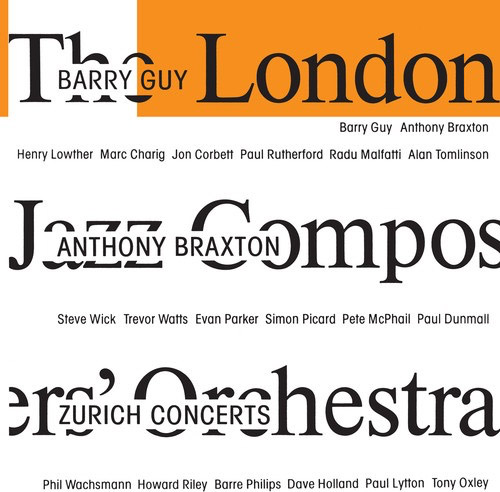
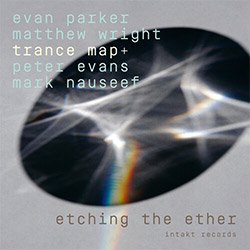






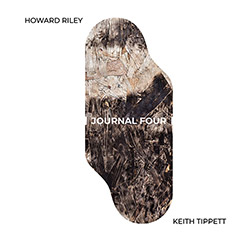
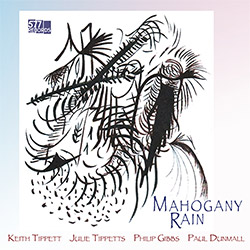

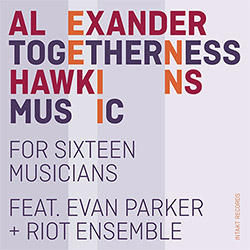
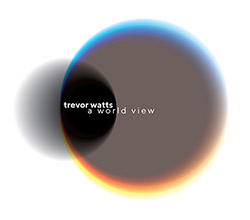

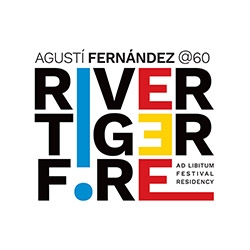
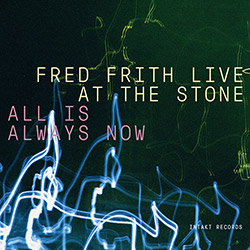

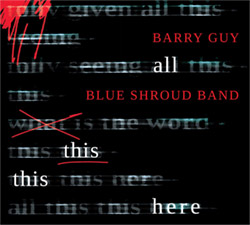
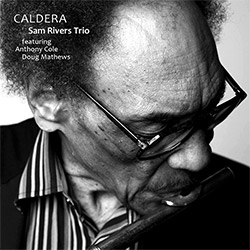

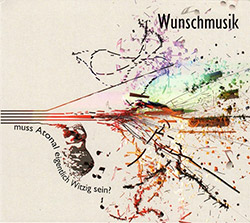


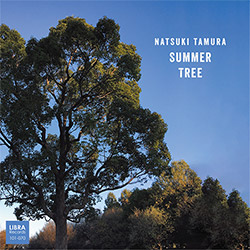
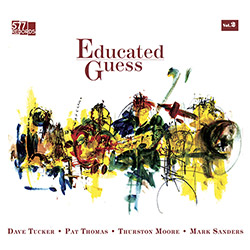





![BlueRing Improvisers: Materia [2 CDs]](https://www.teuthida.com/productImages/misc4/36513.jpg)








![Wheelhouse (Rempis / Adasiewicz / McBride): House And Home [VINYL]](https://www.teuthida.com/productImages/misc4/36462.jpg)
![+DOG+: The Light Of Our Lives [2 CDs]](https://www.teuthida.com/productImages/misc4/36009.jpg)


![Parker, Evan / Jean-Marc Foussat: Insolence [VINYL]](https://www.teuthida.com/productImages/misc4/36398.jpg)










![Deupree, Jerome / Sylvie Courvoisier / Lester St. Louis / Joe Morris: Canyon [2 CDs]](https://www.teuthida.com/productImages/misc4/36404.jpg)



![Eventless Plot | Haarvol: The Subliminal Paths [CASSETTE + DOWNLOAD]](https://www.teuthida.com/productImages/misc4/36232.jpg)










![Eventless Plot | Francesco Covarino: Methexis [CASSETTE + DOWNLOAD]](https://www.teuthida.com/productImages/misc4/36231.jpg)



![Das B (Mazen Kerbaj / Mike Majkowski / Magda Mayas / Tony Buck): Love [VINYL]](https://www.teuthida.com/productImages/misc4/36329.jpg)


![Eternities: Rides Again [CASSETTE]](https://www.teuthida.com/productImages/misc4/36247.jpg)
![Lopez, Francisco: Untitled (2021-2022) [2 CDs]](https://www.teuthida.com/productImages/misc4/36438.jpg)






![Money : Money 2 [2 CDs]](https://www.teuthida.com/productImages/misc4/35894.jpg)




![Klinga, Erik: Elusive Shimmer [VINYL]](https://www.teuthida.com/productImages/misc4/36258.jpg)
![CHANGES TO blind (Phil Zampino): Volume 9 - I Wave on a Fine Vile Mist [CD + DOWNLOAD]](https://www.teuthida.com/productImages/misc4/36061.jpg)

![Wallmart / Rubbish: Asset Protection [split CD]](https://www.teuthida.com/productImages/misc4/35900.jpg)


![+Dog+: The Family Music Book Vol. 5 [2 CDs]](https://www.teuthida.com/productImages/misc4/35897.jpg)
![Kuvveti, Deli : Kuslar Soyledi [CASSETTE w/ DOWNLOAD]](https://www.teuthida.com/productImages/misc4/36107.jpg)

![Brown, Dan / Dan Reynolds: Live At The Grange Hall [unauthorized][CASSETTE]](https://www.teuthida.com/productImages/misc4/36245.jpg)








![Palestine, Charlemagne / Seppe Gebruers: Beyondddddd The Notessssss [VINYL]](https://www.teuthida.com/productImages/misc4/36206.jpg)
![Palestine, Charlemagne / Seppe Gebruers: Beyondddddd The Notessssss [NEON GREEN VINYL]](https://www.teuthida.com/productImages/misc4/36207.jpg)

![Laubrock, Ingrid: Purposing The Air [2 CDs]](https://www.teuthida.com/productImages/misc4/35639.jpg)

![Yoko, Ono / The Great Learning Orchestra: Selected Recordings From Grapefruit [2 CDs]](https://www.teuthida.com/productImages/misc4/35841.jpg)









![Zorn, John / JACK Quartet: The Complete String Quartets [2 CDs]](https://www.teuthida.com/productImages/misc4/35609.jpg)

![Lonsdale, Eden: Dawnings [2 CDs]](https://www.teuthida.com/productImages/misc4/35480.jpg)



![Sorry For Laughing (G. Whitlow / M. Bates / Dave-Id / E. Ka-Spel): Rain Flowers [2 CDS]](https://www.teuthida.com/productImages/misc4/35985.jpg)

![Rolando, Tommaso / Andy Moor : Biscotti [CASSETTE w/ DOWNLOADS]](https://www.teuthida.com/productImages/misc4/36106.jpg)


![Electric Bird Noise / Derek Roddy: 8-10-22 [CD EP]](https://www.teuthida.com/productImages/misc4/35970.jpg)








![Elephant9 : Mythical River [VINYL]](https://www.teuthida.com/productImages/misc4/34624.jpg)



![Elephant9 with Terje Rypdal: Catching Fire [VINYL 2 LPs]](https://www.teuthida.com/productImages/misc4/35355.jpg)
![Deerlady (Obomsawin, Mali / Magdalena Abrego): Greatest Hits [VINYL]](https://www.teuthida.com/productImages/misc4/34876.jpg)







![Surplus 1980: Illusion of Consistency [CD]](https://www.teuthida.com/productImages/misc4/35069.jpg)
![Staiano, Moe: Away Towards the Light [VINYL + DOWNLOAD]](https://www.teuthida.com/productImages/misc4/35037.jpg)
![Coley, Byron: Dating Tips for Touring Bands [VINYL]](https://www.teuthida.com/productImages/misc4/17906.jpg)

![Lost Kisses: My Life is Sad & Funny [DVD]](https://www.teuthida.com/productImages/misc4/lostKissesDVD.jpg)